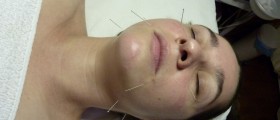
Under ideal conditions, during the menstrual cycle a woman's body makes follicle stimulating hormone many days prior to her period. With an increase in FSH levels the mature egg will form on one of the ovaries and when ready, a surge of luteinizing hormone will occur. With the surge of LH in the body, the follicle will burst open and push the egg into the fallopian tube where it can be fertilized and once the follicle refills, the fluid changes to a thick yellow colored substance. A normal menstrual cycle can be interrupted in many ways and three causes could be poor follicle production, premature death of the corpus luteum and failure of the uterine lining to mature. All of these things need to happen in order for a woman to be able to conceive, become pregnant and carry a baby to term.
Luteal phase defect once diagnosed is a condition which can be treated effective and better the chances a woman has when trying to conceive a baby. Once luteal phase defect has been discovered, it is normal for a physician to order a serum progesterone test at approximately 7 days past ovulation. A level less than 14 ml indicates that progesterone manufacturing during the luteal phase is inadequate and some type of medical intervention is needed if the condition is to be treated properly. Luteal phase defect treatment can possibly be something treated using over-the-counter remedies such as vitamin B6 and progesterone cream. The vitamin is to be taken in doses ranging from 50 mg to 200 mg daily and it will help lengthen the luteal phase, ease premenstrual syndrome and morning sickness.
The progesterone cream is usually reserved for menopausal women, but it can help lengthen the luteal phase, but a woman should consult with a medical professional before trying any natural remedies. With the right luteal phase defect treatment, it is possible to correct the condition and lengthen a woman's fertile period and improve the quality of the uterine lining. Before trying anything new or adding any supplements or progesterone cream, a woman should get a definite diagnosis from a licensed medical professional and discuss options and alternatives that would work best for her situation.















Your thoughts on this
Loading...